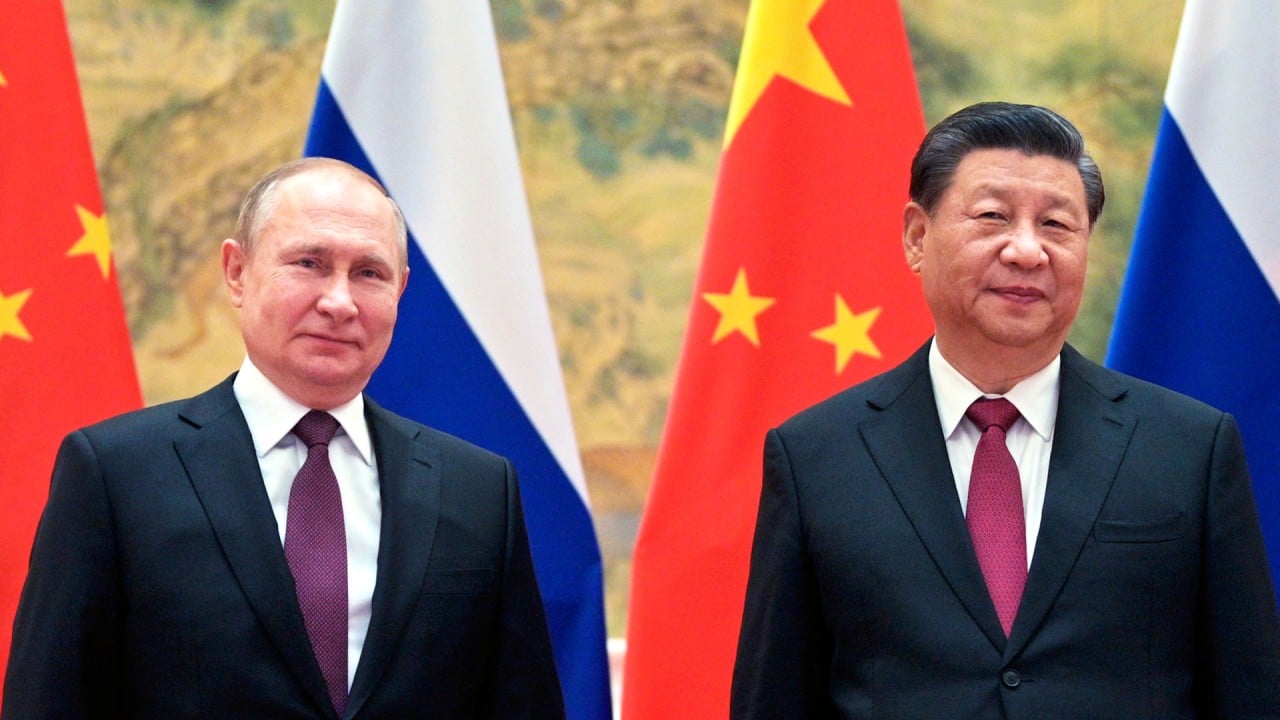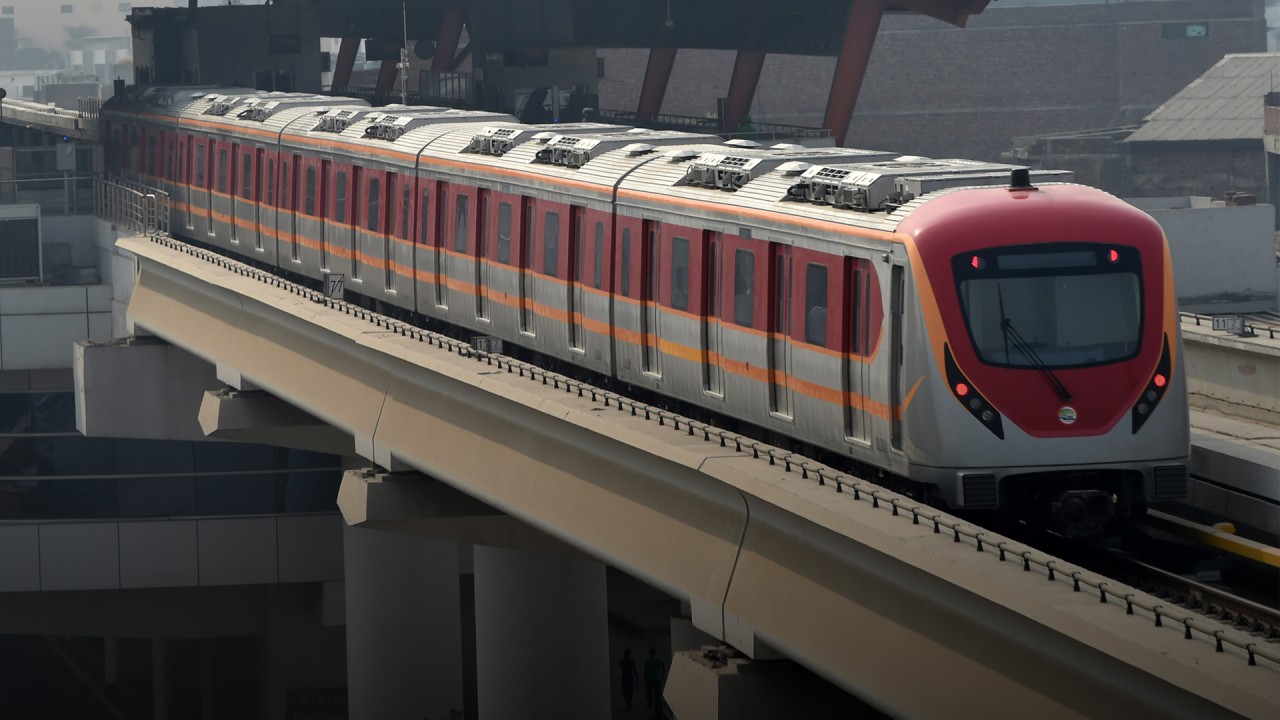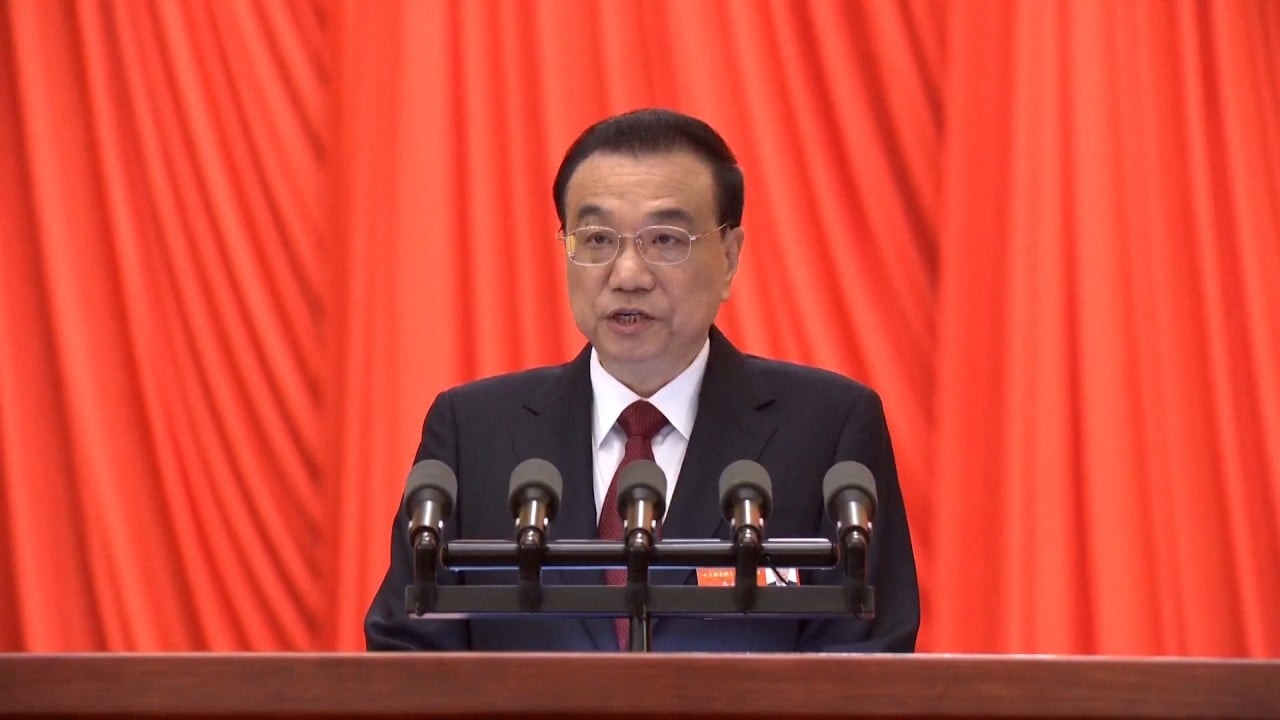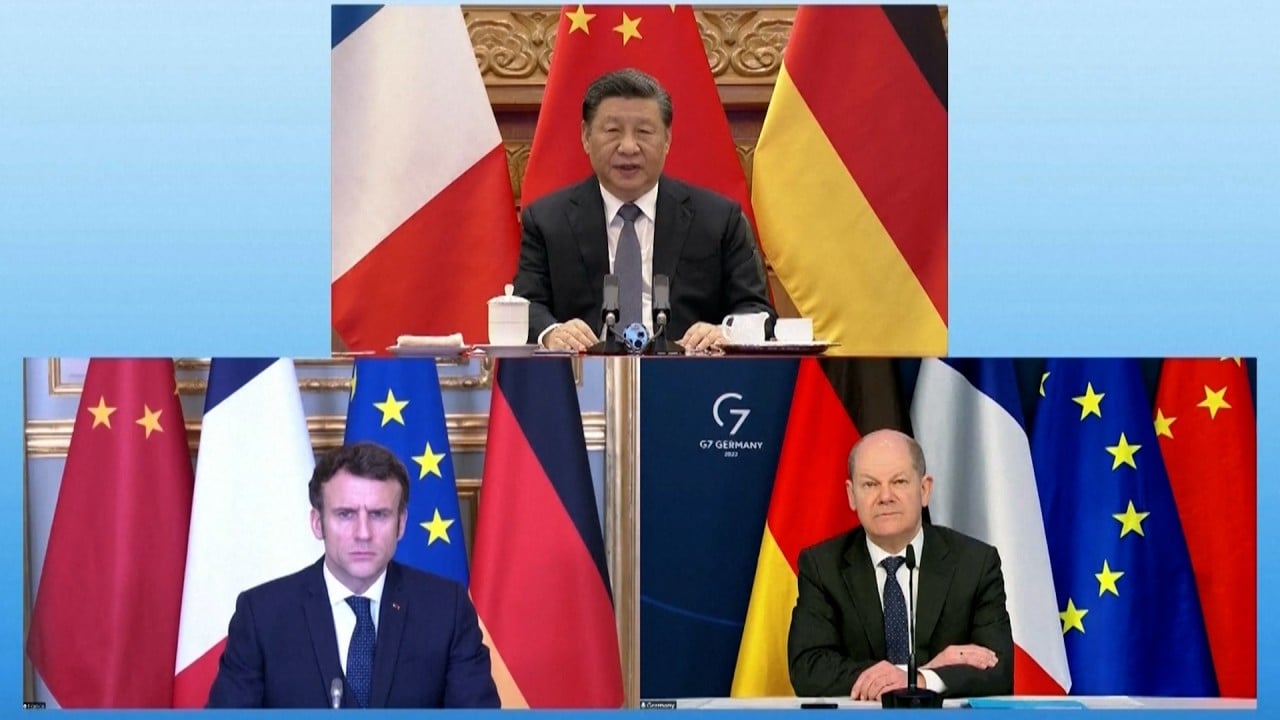
Ukraine invasion: with the US distracted, China may have an ‘opportunity’ to expand economic influence in the Middle East
- With US diplomacy focused on the Ukraine crisis, China could attempt to ‘advance its objectives’ in the Middle East, analyst says
- Other experts contend Chinese companies have a specific agenda in the region, focused on getting materials like oil and gas
Russia’s invasion of Ukraine may give China an “opportunity” to gain influence in the Middle East through its Belt and Road Initiative, with the United States distracted in Europe, analysts said.
However, Beijing is likely to be prudent with any economic overtures, they added.
In January, Chinese foreign Minister Wang Yi held a series of talks with Gulf nations on economic cooperation and regional issues, such as the Iran nuclear deal.
The same month, Syria signed a memorandum of understanding on the Belt and Road Initiative, as the country is seeking post-war reconstruction.
What is China’s Belt and Road Initiative all about?
Chinese analysts were also quick to highlight Beijing’s meeting with members of the Gulf Cooperation Council (GCC) – Saudi Arabia, Kuwait, Oman and Bahrain – in January, as an example of growing economic cooperation.
Both sides agreed to speed up negotiations on a free-trade agreement and strengthen their strategic partnership.
“China has long been both opportunistic and cautious in its engagement with the Middle East,” Calabrese said.
The war in Ukraine could supply an opportunity for China to exploit the Biden foreign policy team’s focus on developments in Europe
“The war in Ukraine could supply an opportunity for China to exploit the Biden foreign policy team’s focus on developments in Europe to advance its objectives in the region.”
However, he added that Chinese companies have recently been more selective in terms of undertaking new projects and making new financial commitments.
Arhama Siddiqa, a research fellow at Institute of Strategic Studies Islamabad, said despite the Ukraine crisis China will “continue to focus on economic collaboration” in the Middle East under the Belt and Road Initiative.
“It should be kept in mind that the US dollar is central to the international system, so [the Ukraine crisis], as well as other events, will – or have – motivated countries like China and Russia to find alternative channels for payment and trading,” she said.
Data from French bank Natixis showed China’s total outbound investment in the Middle East and North Africa (MENA) has declined steadily after peaking in 2016 at US$22.972 trillion, falling to US$288 billion in 2020.
Siddiqa said the economic shock of the coronavirus pandemic had caused the value of Chinese investment in the region to fall, but its geographic footprint was expanding, noting the formal involvement of Syria.
“China is looking for specific needs, for example, batteries for electric vehicles, gas and oil or metal-related investments like rare earth,” said Alicia Garcia-Herrero, senior fellow at European think tank Bruegel. “China tries to secure its resources.”
Christoph Nedopil Wang, director at Fudan University’s Green Finance & Development Centre, said most Chinese projects in terms of value in the Middle East are related to resources such as gas and oil.
“Whether this relates to China’s desire to secure energy or this is part of a wider strategic political calculus is both possible,” he said.
China’s Middle East strategy stays focused on economics
Austin Strange, Wilson China Fellow at the Wilson Centre, said China’s needs in the Middle East needed to be viewed in the context of wider strategic development.
“The Middle East appears more important for promoting China’s global military presence both in terms of arms sales and potential access points,” he said.
“Moreover, of course, China has long-standing diplomatic and economic ties to several Middle Eastern countries, and crude oil exports from the region remain crucial for China’s energy security.”
Calabrese added: “China’s expanding economic involvement in the region has laid the basis for enhancing its political influence.
“The deterioration of bilateral relations and increasing strategic competition with the US is likely to serve as the impetus for Beijing to seek to deepen its political ties with MENA partners.”
Daniel Marwecki, lecturer at the University of Hong Kong’s department of politics and public administration, said China’s influence in the Middle East has so far been mainly of economic nature.
It was also making inroads where the West has effectively pushed countries towards China, such as the heavily-sanctioned Iran.
“But I think China sees what US military engagement in the wider region, including Afghanistan, has done. A huge cost to human life and no realisation of Western interests.
“Not that China is a great moral actor here, but I think it just sits out Western mistakes and expands the [Belt and Road Initiative] as an alternative economic system with itself at the centre [as in] a return of sorts to the days preceding Western dominance in the region.”
The Middle East doesn’t need an ‘external patriarch’: China’s Wang Yi
Analysts said the convoluted political landscape in the Middle East had slowed Beijing’s progress in the region, as it took time to learn the peculiarities.
“China is learning the fact that it’s not getting the money back,” said Garcia-Herrero. “So what’s the point of lending so much?”
Michael Rubin, senior fellow at the American Enterprise Institute, echoed Garcia-Herrero’s comments, citing Iraq as an example.
“China may soon learn what every other investor in Iraq does. Iraq is a black hole for investment,” he said.
“Collateral will be hard to collect as every successive government ignores its commitments under commercial and trade law.”
Corporations like Chinese State Construction Engineering, Power China, Sinotech and Citic Construction have not yet poured money into Iraq projects that were agreed to in 2021 with a total value of US$8 billion, according to London-based China Investment Research.
“Iraq has plenty of money and human capital. Its greatest problem is corruption, which is why Iraq systematically underperforms,” said Rubin, senior fellow at American Enterprise Institute.
“Iraq is not talking about long-term indebtedness or fiscal responsibility. While protests erupted in 2019 about corruption and Iraq’s dire economic straits, the government has reverted to business as usual.
“In Iraq today, the only truism is that every government is more populist than the last. Debt and fiscal sustainability does not factor into the discussions of government officials more interested in appeasing their base or winning promotion based on popularity.”





